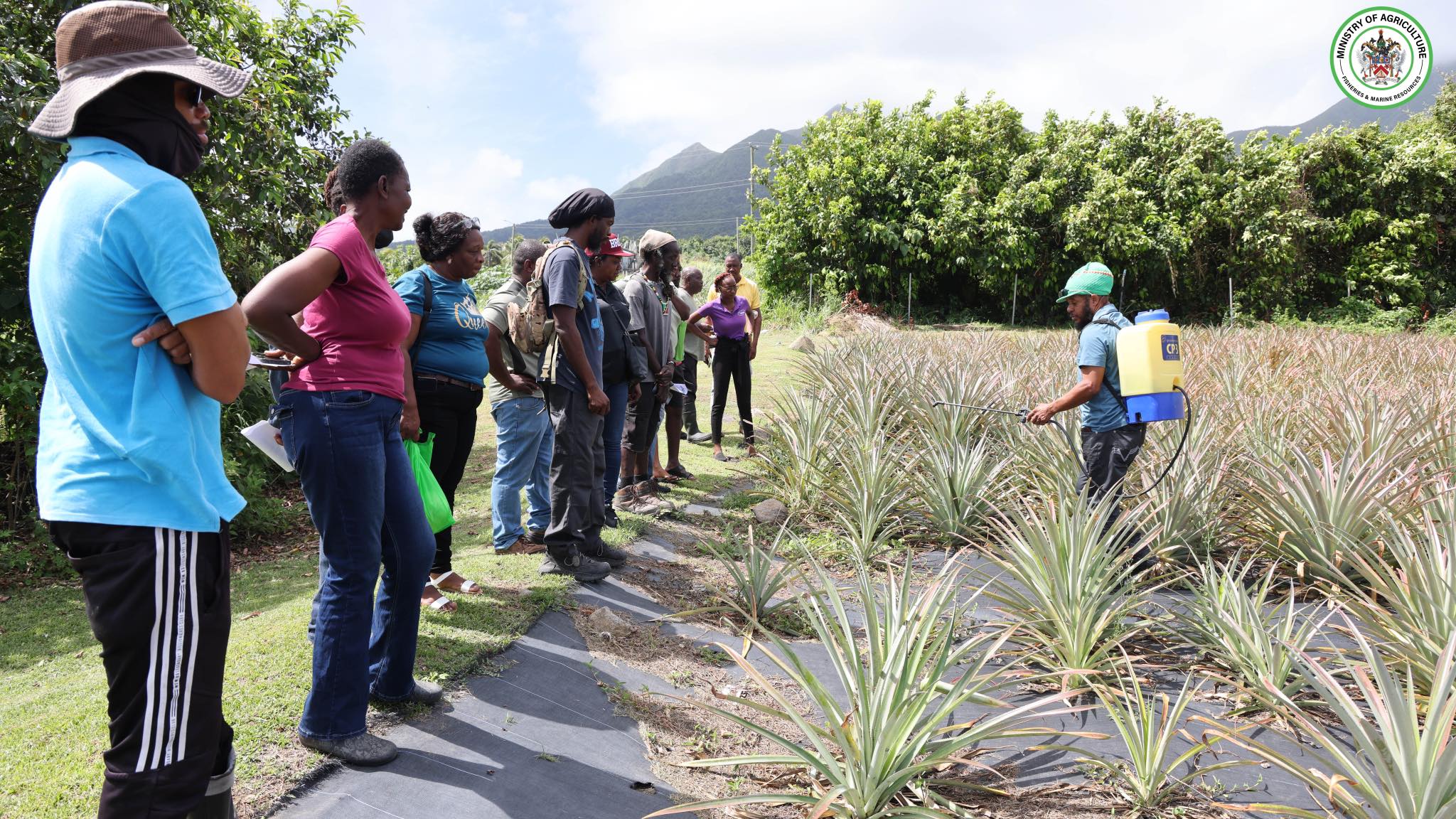Government-Provided Technical Assistance Increases Pineapple Production in St. Kitts
Revitalizing Pineapple Production in St. Kitts and Nevis: A Comprehensive Approach to Agricultural Enhancement
The island nation of St. Kitts and Nevis is embarking on a journey to revitalize its pineapple industry, aiming to bolster local agriculture, enhance food security, and capitalize on the untapped potential of this tropical fruit. The government, through its Department of Agriculture, recently conducted a comprehensive training session for pineapple farmers, marking a significant step in this ambitious endeavor. This initiative reflects a broader commitment to supporting local farmers through technical assistance, focusing on improved productivity, enhanced crop quality, and increased market competitiveness.
The training session, held at the Tabernacle Outreach Centre, targeted farmers who had previously received pineapple suckers from the department. It served as a practical guide to essential cultivation techniques, covering aspects from planting to pest control. Dion Weekes, the Agriculture Extension Officer for District 3, led the session, emphasizing key practices for successful pineapple cultivation. He highlighted the importance of proper spacing, recommending a 12-inch by 12-inch arrangement with three-foot gaps between rows, to optimize plant growth and facilitate efficient management. Cleanliness was also stressed as a crucial factor in maintaining pineapple health and preventing disease.
Pest and disease management formed a critical component of the training. Mr. Weekes underscored the vulnerability of pineapples to various pests, including spiders, mice, ants, and fungi, despite their robust appearance. He emphasized the need for regular monitoring and preventative measures. Rainfall management was also addressed, given the susceptibility of pineapples to rotting in excessively wet conditions. Maintaining a balance between adequate hydration and preventing waterlogging is crucial for optimal fruit development.
The training extended beyond basic cultivation practices, encompassing a broader vision for the pineapple industry’s future. Mr. Weekes expressed optimism about the sector’s growth potential, citing strong local demand that currently outstrips supply. Value addition through processed products like pineapple slices, juices, and diced pieces was also discussed as a means to further enhance market value and profitability. The prolific nature of pineapple plants, capable of producing up to five slips per plant, presents an opportunity for rapid expansion, with the potential to increase yields fivefold within a six-month timeframe. The Department of Agriculture’s commitment to ongoing support and coordination reinforces the collaborative nature of this agricultural initiative, ensuring farmers have the necessary resources and guidance to succeed.
Damion Cannonier, a participating crop farmer, expressed gratitude for the timely and essential training, highlighting its relevance in light of the introduction of new pineapple varieties. He acknowledged the valuable insights gained, particularly regarding slip treatment before transplanting, flowering induction techniques, and pest and fungal disease identification. The practical knowledge imparted during the session promises to significantly improve Mr. Cannonier’s farming practices and contribute to the overall enhancement of pineapple cultivation in the region. This sentiment underscores the tangible benefits of the training program and its potential to empower farmers with the skills and knowledge necessary to thrive in a dynamic agricultural landscape.
The training covered a wide spectrum of best practices, from pest control and soil management to appropriate watering and spacing techniques, ensuring optimal plant health and productivity. The government’s proactive approach in providing this comprehensive training underscores its commitment to empowering local farmers, equipping them with the tools and knowledge necessary to meet market demands while simultaneously strengthening the nation’s food security. This initiative represents a holistic strategy to revitalize the pineapple industry, fostering sustainable agricultural practices, and contributing to the overall economic and social well-being of St. Kitts and Nevis.
The revitalization of pineapple production in St. Kitts and Nevis signifies more than just an agricultural endeavor; it embodies a vision of a self-reliant and prosperous nation. By investing in its farmers and fostering innovation in the agricultural sector, the government is not only addressing immediate needs but also laying the foundation for a sustainable future. The pineapple initiative, with its focus on enhanced production, improved quality, and value-added processing, holds the promise of transforming a traditional crop into a driver of economic growth and community development. The success of this initiative will serve as a testament to the power of collaboration, innovation, and a dedicated commitment to empowering local communities.
Share this content:









Post Comment